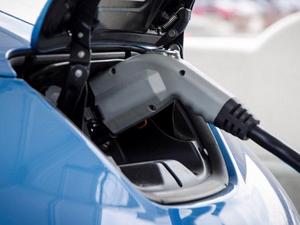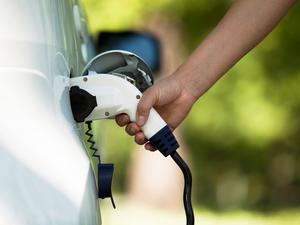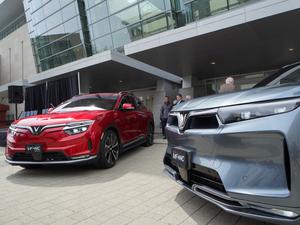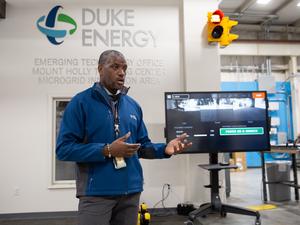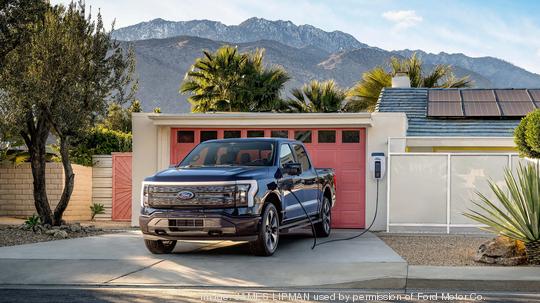
Duke Energy Carolinas has asked regulators to approve a pilot program with Ford Motor Co. The program would give leasing discounts for F-150 Lightning trucks to customers who let Duke tap their batteries for power during peak use periods.
Harry Sideris, executive vice president of customer experience, solutions and services at Duke Energy Corp. (NYSE: DUK), says the incentives arranged through Ford cut leasing costs by $300 a year on a four-year lease.
“The concept fits clearly in our clean energy strategy — both the N.C. Clean Energy Plan and the company’s own internal plans,” he says. "We think plans like this will accelerate adoption of (electric vehicles) and allow us to decarbonize more effectively.”
The pilot will initially involve only the F-150 electric vehicles due to their large batteries and because the F-150 and its charger base have the bi-directional technology to share power from the battery to the grid built in.
What will pilot help Duke Energy determine?
It is not the only vehicle with this capability, Sideris says, and the utility is likely to consider expanding the program to other models. But to start off, he says, it is simpler to deal with one manufacturer for the incentives. The F-150 is ideal because nearly 80% of the vehicles are leased rather than purchased.
The request to the N.C. Utilities Commission outlines a program that would initially seek up to 100 F-150 leaseholders to participate.
“While bi-directional charging capable EVs are just now entering the market, ultimately, full-scale commercial programs like this pilot provide a large potential resource for the company to reduce energy use during peak periods, which helps manage the grid, maintain reliability and conserve natural resources,” the application says. “The purpose of this pilot is to learn more about managing peak load conditions using EV batteries through evaluating: (i) the bi-directional V2G (vehicle to grid) technology, (ii) the availability and performance of EV batteries and (iii) the impact on battery life and functionality.”
It continues: “Importantly, this pilot will also provide valuable insights on customers’ willingness to allow control of their respective EV batteries. From the learnings, the company intends to propose a full-scale commercialized version of this pilot.”
Sideris says that could happen before the four-year pilot ends. The plan is to evaluate the data in two years, and a decision could be made to go ahead with a commercial version of the program after that evaluation.
North Carolina pilot to begin in 2023, follows smaller program in Florida
He says Duke Carolinas was chosen for the pilot because it is Duke’s largest utility and is the most likely to quickly reach the 100 customers the pilot hopes to attract. That is the participation cap for the initial pilot. Duke says the pilot can be effective with as few as 35 participants.
Duke plans to start the pilot in early 2023.
It is also running a small pilot in Florida using F-150s in its own fleet at Duke Energy Florida. That pilot tests the most effective ways to do the same sort of “Energy Orchestration” program with electric vehicle fleets.
Ford Chief Policy Officer Steve Conley says the projects are important to the manufacturer as well. The truck is designed to be able to power customers' homes during power outages, but it also has the capacity to link to the grid.
“Ford’s electric vehicles are unlocking new possibilities in energy management for our customers, becoming valuable energy storage sources that are changing the game on the benefits an EV can deliver,” he says in a written statement. “Alongside Duke Energy and our mutual customers, we’re working to fine-tune and expand these capabilities that will not only power their lives, but also accelerate the development of a less carbon-intensive grid.”
Sideris says that every 100,000 F-150s represent a gigawatt of available energy stored in their batteries. The vehicle has the largest commercial vehicle battery available on the market currently, along with the EV version of the Hummer.
“So, the potential is there,” he says.
